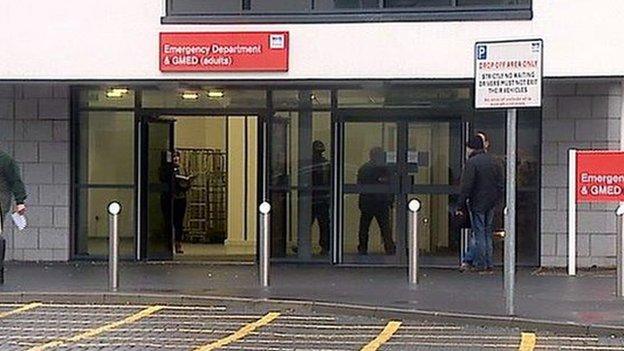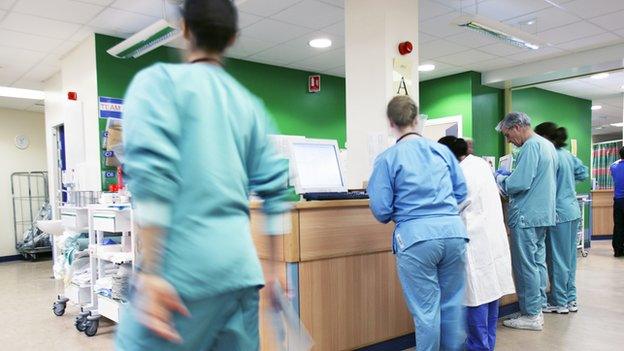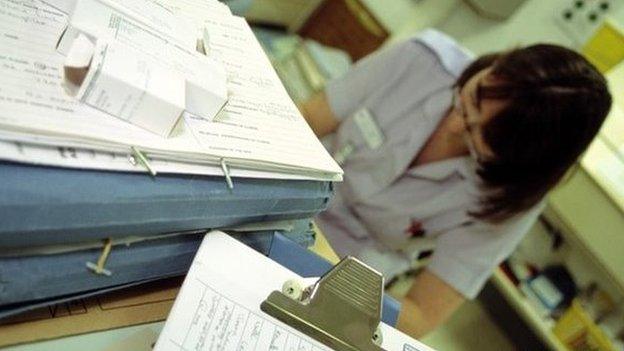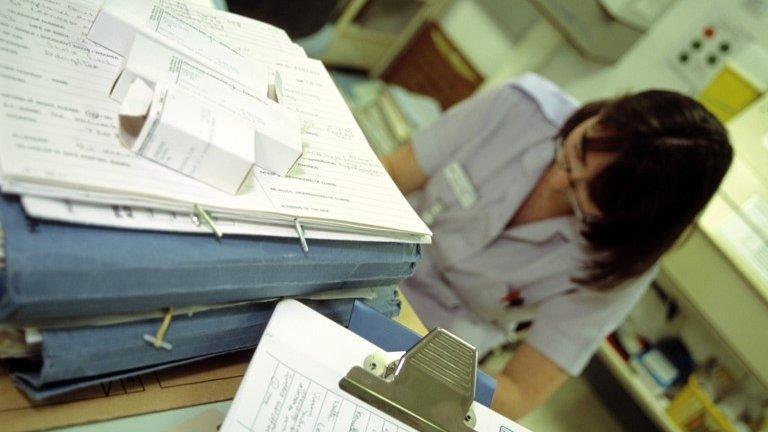Hospital discharge delays tackled with £100m of funding
- Published
Health Secretary Shona Robison said the funding would "ease pressure" on the NHS
The issue of patients stuck waiting to be discharged from hospital is to be tackled with £100m of funding from the Scottish government.
The money, invested over three years, will be used to help health boards and councils provide support packages for people in their own homes.
Figures from last October showed a rise in number of patients waiting longer than four weeks to be discharged.
The health secretary said the funding would "ease pressure" on the system.
Delayed discharge, often referred to as bed-blocking, is when a patient is judged clinically ready to go home but continues to occupy a hospital bed while plans are made for appropriate follow-up care.
Health Secretary Shona Robison has said cutting the number of people stuck in hospital waiting for a care package to be arranged is an "absolute key priority" for the Scottish government.
The plans for the funding were announced on a visit to Cowan Court care home in Penicuik.
It is part of wider efforts to better integrate health and social services.

Meanwhile, Holyrood's presiding officer, Tricia Marwick, has accused Ms Robison of "gross discourtesy" for making a major policy announcement outside the Scottish parliament.
At the start of parliamentary business, Ms Marwick told MSPs she found the decision to reveal the funding at a Midlothian care home "unacceptable".
'72-hour standard'
Ms Robison earlier told BBC Scotland's Good Morning Scotland programme that the funding was a three-year package.
She said: "It gives the integrated partnerships - health and social care coming together - a three-year ability to plan and develop services."
The health secretary said the fact that health and social services were being integrated showed there had been a "realisation that those systems had to be brought together if we were really going to be able to tackle delayed discharge in a sustainable way".
She said that health boards and councils would work together with an aim of discharging patients within 72 hours of clinical readiness.
Ms Robison said: "My plan is to get rid of delayed discharge, for it to become something of the past, and move to a 72-hour standard where people are discharged within 72 hours of being clinically ready."
She said the consequences of delayed discharge were extra pressure on A&E because beds were not available to admit people to hospital.
"We have to make sure that the patient flow through our hospitals is smooth and people can get out," she said.
"The most important thing is for the person themselves. It is not good for a frail, elderly person to be stuck in a hospital bed any longer than they need to be."
Cosla, the body which represents Scotland's local authorities, welcomed the funding along with the establishment of a taskforce to roll out delayed discharge improvement plans.
Councillor Peter Johnston, health and well-being spokesman for Cosla, said: "This is a timely investment from the Scottish government - amidst a challenging operating environment for councils and health boards.
"The new Health and Social Care Partnerships will be forming in April and this resource will act as a real catalyst in making inroads into delayed discharge."
Liberal Democrat MSP Jim Hume said he welcomed the announcement but questioned why the money was not available sooner.
Mr Hume said: "While Scottish Liberal Democrats support moves to treat more people in their own settings, ministers have bottle-necked our hospitals by cutting beds without subsequently increasing community care.
"The real test now will be whether the SNP can get a grip of the problem of delayed discharges and stop the worsening crisis."
- Published6 January 2015

- Published22 December 2014

- Published17 December 2014

- Published2 December 2014

- Published12 December 2014

- Published3 March 2015

- Published25 November 2014
